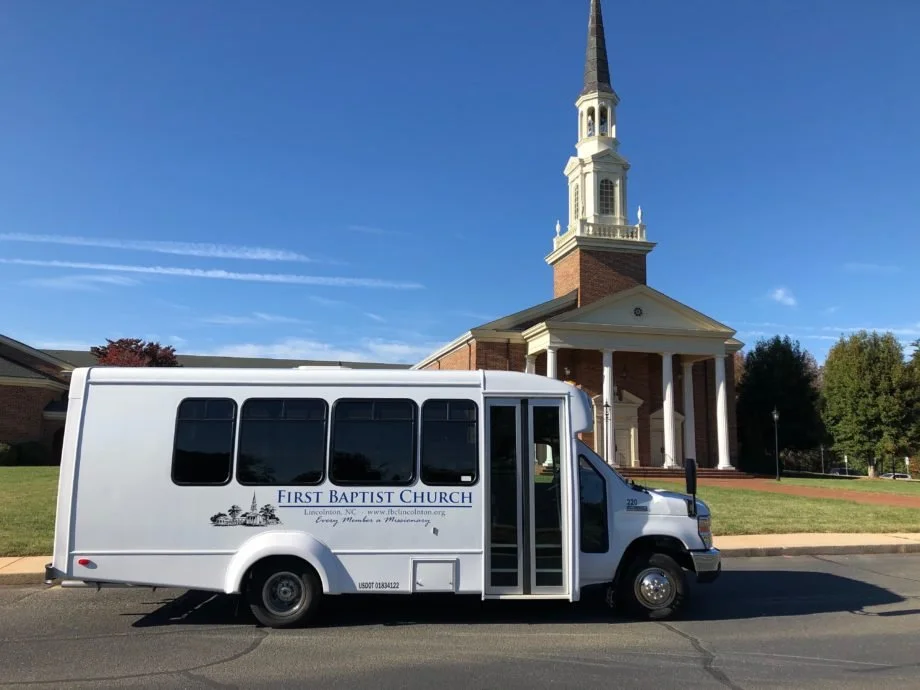3.6 A Mindset in Motion
Using John’s story as "a track to run on" is problematic. Sometimes, I feel like the little engine that could - full of preconceived ideas about what these verses mean - while climbing the hill to a new understanding. Most of these notions were formed during an idyllic, small-town childhood, and they were the right thing for that time. I still like to think of Jesus as the kind man with the lost lamb around his shoulders, like in the picture in my Sunday school class, even though I now know Jesus was not actually a shepherd. I like to believe that "I am weak, but he is strong,” and he loves "all the little children in the world.” Yet, now I know that 45 million young children across the globe suffer from severe malnutrition each year and would give anything for "their daily bread.”
If I am going to be any "earthly good," I'll have to do like Paul and "put away childish things." But don’t tune me out here; this is not religious. Anyone, Christian or not, spiritual or not, will have to do the same thing - put away childish things.
“All Aboard”
Here's a quick example. As a kid, when the sermon was about Jesus' return, I would vividly picture a bus pulling up in front of our church.
The doors of the church and bus would then open, and everyone would get on board for the ride to heaven - no records checked.
I remember thinking, "I sure hope I'm in church that day.” I was very certain the people who stayed home would not go, and I wasn't really sure about the Methodists and Presbyterians.
The overemphasis on the following verse in this lengthy conversation between Jesus and Nicodemus formed much of my thinking during childhood.
16 “For God so loved the world that he gave his only Son, so that everyone who believes in him may not perish but may have eternal life.Here's how I heard it: Say you believe in Jesus. Go to church. Get on board. That's fine for a nine-year-old boy, but not 19 or 29 and beyond.
Thinking like this keeps one out of three of the world's children hungry.
Aretha: “You Better Think”
In our convenience-oriented and efficiency-minded culture, few people will take this amount of time to think about these things. However, as an adult, if I hope to uncover truth and put it into practice in my life, I must make the time to set aside childish notions and take this lengthy conversation in its correct context - as one explanation.
Here's what we know so far. Jesus told Nicodemus:
You can be born from above, from the spirit
You can see and enter the kingdom of God
You can be a descendent of heaven
You can understand heavenly things, like a son of man
You can “lift up” this process to the top of your priorities, avoid the serpents of daily life, and attain spiritual or eternal life.
It stands to reason that the following few verses may mean more than (a) believing in Jesus as God’s son guarantees entry into heaven upon death or (b) a precursor to Jesus’ eventual crucifixion. What if there is more to it than that? It's easy to imagine that this conversation was much longer and with many back-and-forth, give-and-take questions and answers. Nicodemus may have asked, "Why would God do a thing like that?” So, let’s grab the three verses in question and add some bullet points.
But first, I have to admit that the Bible’s famous verses may be easily overlooked. As Bernbach said, “In communications, familiarity breeds apathy.” Also, I'm textbook number seven on the Enneagram and an Explorer archetype, so I shun the rerun and seek the next new thing.
It makes walking back through these verses in such detail difficult and requires concentration, like writing with my left hand. But it's the middle of the night, everyone else is asleep, and Jesus is explaining to Nicodemus, you, and me how to “enter a spiritual life.” I'll make the effort.
Here’s the Text
16 “For God so loved the world that he gave his only Son, so that everyone who believes in him may not perish but may have eternal life. 17 “Indeed, God did not send the Son into the world to condemn the world but in order that the world might be saved through him. 18 Those who believe in him are not condemned, but those who do not believe are condemned already because they have not believed in the name of the only Son of God. Here are my bullet points:
As a good father would, he acted out of love.
He wants his offspring to avoid the snakes and have a fulfilling life in the desert and the promised land.
For heaven’s sake, Nicodemus, why would a good father be interested in blaming the bitten children? He would want to do everything possible to save their life.
There are two kinds of people in this world, Nicodemus.
Those who practice this recognition of the creator as their excellent father.
They know that there is no longer a guilt/shame/punishment loop,
Only believe/act/become.
Those who can't accept that man can be an offspring of the creator
They are left with their concept of God as nonexistent or the distant punisher/rewarder
Life for them is tiptoeing through the snakes.
Believing and Becoming
Nicodemus lived a theological life; Jesus taught us how to live an abundant life. Jesus was 20% theology and 80% Do-ology - hearing and Doing, Believing and Becoming. Watch as we go through the rest of John's story and see if that doesn't become more apparent.
During this conversation with Nicodemus, Jesus spoke about “heavenly things,” things seen and heard in consciousness. He compared trusting and following Moses’ advice with trusting and following what he said, both were a daily process. Like hoisting the flag at school in the morning, Moses lifted the bronze snake every day.
Moses didn't just “whiteboard” the problem until he devised the “snake on the pole” solution. He acted based on what he heard within his consciousness, as did Jesus. Both had learned to enter a divine or “heavenly” consciousness through silent contemplation and demonstrate what they saw and heard. Both their thoughts became actions and habits and developed their character. Jesus teaches us to do the same - if we want to live fully and forever. This is the key! It is “how to believe,” and it is done daily and practically.
At this point, I'm full of "why, why, why” like a three-year-old. Jesus quietly explained to Nicodemus, "For God so loved the world." His words are active, not passive. Not "God has a love for the world.” But, “God loved the world in this manner…. “ And to love “is to will the good of others, to promote its good for its own sake.”
Here’s a Game Changer
Try to grasp this. In his original blueprint and intention, the creator drew up a process that would deliver “good” for those who were created. That’s us - you and me.
I began to see, and I hope Nicodemus did too; my Creator wants to enhance my life with a deep sense of peace and joy. How? By dropping “heavenly things” (thoughts) into my quiet consciousness - thoughts that I turn into commonplace actions throughout my daily life - actions that benefit others.
He wants me to increasingly operate from that space of peace and joy, doing those beneficial things which will, in turn, deepen my consciousness: "Love thy neighbor," “Serve one another," and “Forgive one another." Ultimately, Jesus wants Nicodemus to follow his example and experience the same peace and joy. This is how God so loves the world, the manner in which he loves the world. It’s an active process: His love comes to me and through me.
A Mindset in Motion
This mindset plus the practice reinforces the mindset - an evidence-based faith that builds on itself. Its progress can even be measured by simply monitoring the "peace and joy" I experience daily. Am I "in the flow,” receiving from my Creator and acting accordingly? Remember, it’s to me and through me. Am I "trusting the process" or "leaning on my own understanding?” Is my new mindset in Motion?
But what about my earlier interpretation of God sacrificing his only son? Well, it’s both-and, not either-or. But trying to explain that would put me “out of my depth in such waters: more in need of help myself than able to help others,'“ “in the words of C. S. Lewis. However, it forces me to expand my perspective: the very essence of life, which created and continues to create the universe and all its beings, is rooted in selfless love. This revelation shifts my understanding of “who I am” and “how I choose” to live my life. I can now act with kindness and compassion towards others and allow this loving energy to flow through me.
Here are a couple of questions to ponder:
If the power that brought the universe into existence is the same life force that makes up my being, then who am I?
How do I decide to live my life? What steps do I take to determine which thoughts I should turn into daily actions?
Key Takeaways
My spiritual life is not something that happens when I die, but it is now and forever.
A good father and his son characterize this relationship with my Creator.
In his original blueprint, the Creator intended for good to flow to me and through me by acting on his intelligence.
We will start the next section by examining how Jesus reboots Nicodemus' idea of judgment. His Old Testament concept was shaped by the reality of kings whom you might be brought before to have your actions judged “good or bad” and “reward or punishment” handed out.





